人体解剖生理学Human Anatomy and Physiology汇总共44页
- 格式:ppt
- 大小:3.64 MB
- 文档页数:33
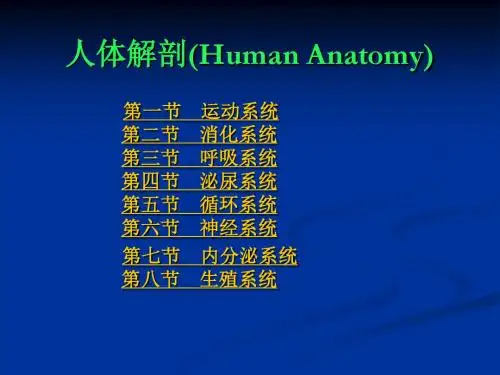
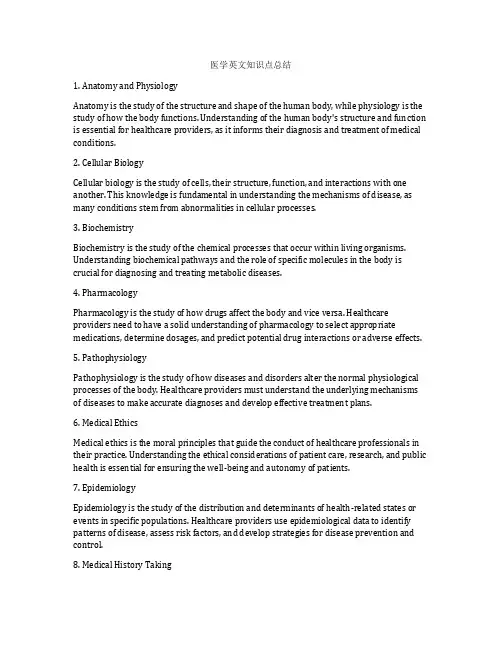
医学英文知识点总结1. Anatomy and PhysiologyAnatomy is the study of the structure and shape of the human body, while physiology is the study of how the body functions. Understanding of the human body's structure and function is essential for healthcare providers, as it informs their diagnosis and treatment of medical conditions.2. Cellular BiologyCellular biology is the study of cells, their structure, function, and interactions with one another. This knowledge is fundamental in understanding the mechanisms of disease, as many conditions stem from abnormalities in cellular processes.3. BiochemistryBiochemistry is the study of the chemical processes that occur within living organisms. Understanding biochemical pathways and the role of specific molecules in the body is crucial for diagnosing and treating metabolic diseases.4. PharmacologyPharmacology is the study of how drugs affect the body and vice versa. Healthcare providers need to have a solid understanding of pharmacology to select appropriate medications, determine dosages, and predict potential drug interactions or adverse effects.5. PathophysiologyPathophysiology is the study of how diseases and disorders alter the normal physiological processes of the body. Healthcare providers must understand the underlying mechanisms of diseases to make accurate diagnoses and develop effective treatment plans.6. Medical EthicsMedical ethics is the moral principles that guide the conduct of healthcare professionals in their practice. Understanding the ethical considerations of patient care, research, and public health is essential for ensuring the well-being and autonomy of patients.7. EpidemiologyEpidemiology is the study of the distribution and determinants of health-related states or events in specific populations. Healthcare providers use epidemiological data to identify patterns of disease, assess risk factors, and develop strategies for disease prevention and control.8. Medical History TakingTaking a thorough and accurate medical history is essential in diagnosing and treating patients. Healthcare providers must ask targeted questions to gather information about a patient's symptoms, medical history, family history, and social history.9. Physical ExaminationConducting a systematic and comprehensive physical examination is essential for assessing a patient's overall health. Healthcare providers must be proficient in techniques such as inspection, palpation, percussion, and auscultation to identify abnormalities and make accurate diagnoses.10. Diagnostic TestingInterpreting diagnostic tests such as blood work, imaging studies, and electrocardiograms is essential for diagnosing and monitoring medical conditions. Healthcare providers must understand the indications for specific tests, their limitations, and the interpretation of results.11. Clinical Decision MakingClinical decision making involves synthesizing patient information, medical knowledge, and available evidence to make informed choices about patient care. Healthcare providers must weigh the risks and benefits of treatment options and involve patients in shared decision making.12. Patient CommunicationEffective communication with patients is essential for building trust, conveying information, and involving patients in their care. Healthcare providers must use clear, empathetic, and culturally sensitive communication to ensure patient understanding and engagement.13. Patient EducationPatient education is crucial for empowering patients to manage their health and participate in treatment decisions. Healthcare providers must provide relevant information about medical conditions, treatment options, lifestyle modifications, and self-care strategies. 14. Preventive MedicinePreventive medicine aims to reduce the incidence and impact of disease through health promotion, disease prevention, and early detection. Healthcare providers must understand risk factors, screening guidelines, and immunization schedules to promote primary and secondary prevention.15. Interprofessional CollaborationInterprofessional collaboration involves working with other healthcare professionals to optimize patient care. Healthcare providers must effectively communicate, coordinate care, and respect each other's expertise to achieve positive patient outcomes.16. Patient SafetyPatient safety involves addressing the risks, errors, and harm in healthcare to prevent adverse events and promote a culture of safety. Healthcare providers must implement strategies to improve medication safety, prevent healthcare-associated infections, and reduce diagnostic errors.17. Quality ImprovementQuality improvement involves systematic efforts to enhance the effectiveness, efficiency, and safety of healthcare delivery. Healthcare providers must use data-driven approaches to identify and address opportunities for improvement in patient care.18. Global HealthGlobal health focuses on improving health and achieving equity in health for all people worldwide. Healthcare providers must understand the social, economic, and environmental determinants of health to address global health challenges such as infectious diseases, non-communicable diseases, and health disparities.19. Medical ResearchMedical research aims to advance knowledge in healthcare and improve patient outcomes. Healthcare providers must understand research methodology, scientific evidence, and ethical considerations to critically appraise research findings and apply them to practice.20. Healthcare PolicyHealthcare policy involves the development and implementation of regulations, laws, and programs to improve the delivery, quality, and cost-effectiveness of healthcare. Healthcare providers must understand healthcare policy to advocate for patients, promote health equity, and address healthcare disparities.In conclusion, a comprehensive understanding of medical knowledge points is essential for healthcare providers to provide high-quality, safe, and effective care to patients. Continual learning and application of these knowledge points are crucial for improving patient outcomes and advancing the field of medicine.。
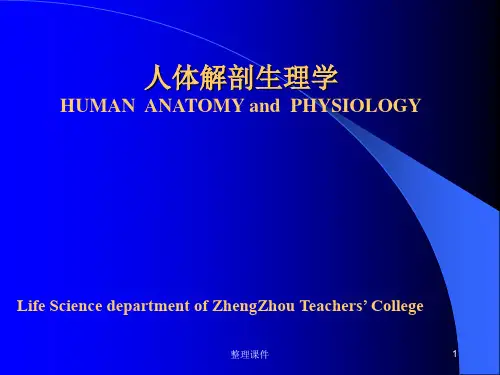
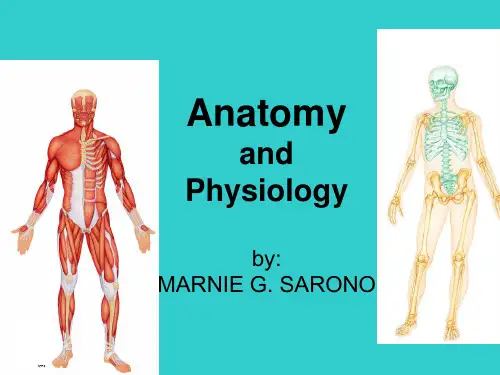

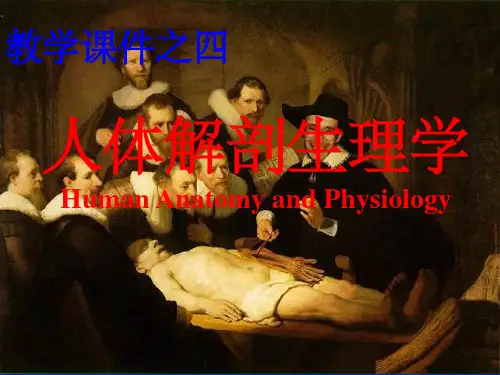

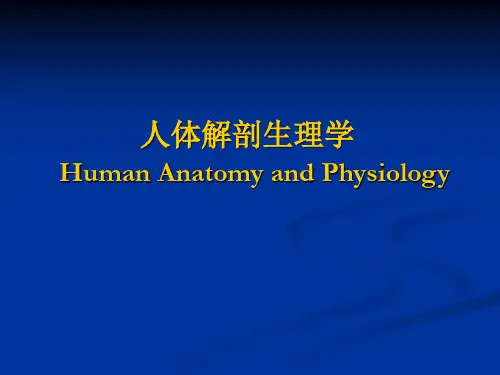
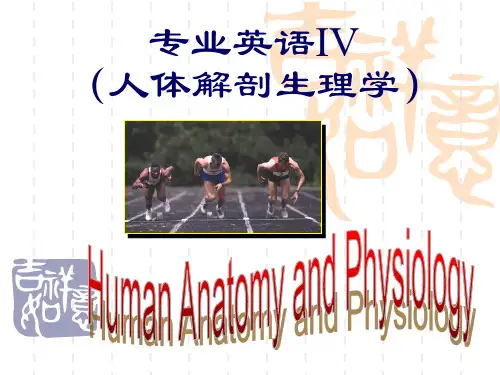
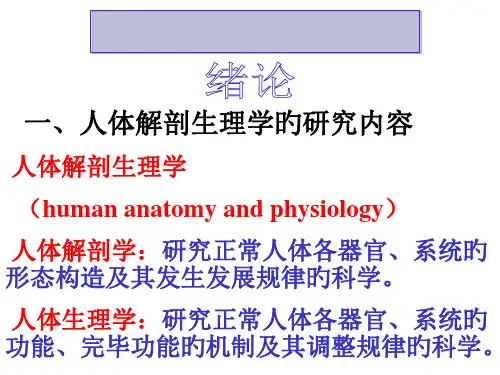
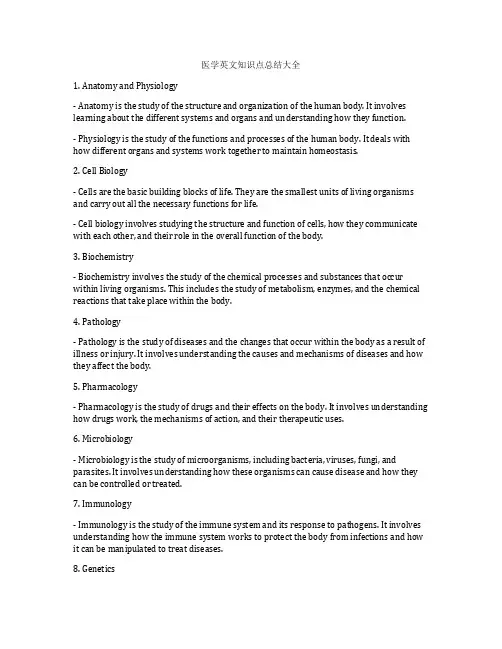
医学英文知识点总结大全1. Anatomy and Physiology- Anatomy is the study of the structure and organization of the human body. It involves learning about the different systems and organs and understanding how they function.- Physiology is the study of the functions and processes of the human body. It deals with how different organs and systems work together to maintain homeostasis.2. Cell Biology- Cells are the basic building blocks of life. They are the smallest units of living organisms and carry out all the necessary functions for life.- Cell biology involves studying the structure and function of cells, how they communicate with each other, and their role in the overall function of the body.3. Biochemistry- Biochemistry involves the study of the chemical processes and substances that occur within living organisms. This includes the study of metabolism, enzymes, and the chemical reactions that take place within the body.4. Pathology- Pathology is the study of diseases and the changes that occur within the body as a result of illness or injury. It involves understanding the causes and mechanisms of diseases and how they affect the body.5. Pharmacology- Pharmacology is the study of drugs and their effects on the body. It involves understanding how drugs work, the mechanisms of action, and their therapeutic uses.6. Microbiology- Microbiology is the study of microorganisms, including bacteria, viruses, fungi, and parasites. It involves understanding how these organisms can cause disease and how they can be controlled or treated.7. Immunology- Immunology is the study of the immune system and its response to pathogens. It involves understanding how the immune system works to protect the body from infections and how it can be manipulated to treat diseases.8. Genetics- Genetics is the study of heredity and the variation of inherited traits. It involves understanding how genes are passed from one generation to the next and how they can influence the development of diseases.9. Neurology- Neurology is the study of the nervous system, including the brain, spinal cord, and nerves. It involves understanding how the nervous system functions and how it can be affected by diseases or injuries.10. Cardiology- Cardiology is the study of the heart and the circulatory system. It involves understanding how the heart works, the causes of heart disease, and the treatment of cardiovascular disorders.11. Pulmonology- Pulmonology is the study of the respiratory system, including the lungs and airways. It involves understanding how the respiratory system functions, the causes of respiratory diseases, and their treatment.12. Gastroenterology- Gastroenterology is the study of the digestive system, including the stomach, intestines, and liver. It involves understanding how the digestive system works, the causes of gastrointestinal diseases, and their treatment.13. Endocrinology- Endocrinology is the study of the endocrine system, including hormones and their effects on the body. It involves understanding how hormones regulate various bodily functions, the causes of endocrine disorders, and their treatment.14. Nephrology- Nephrology is the study of the kidneys and the urinary system. It involves understanding how the kidneys function, the causes of kidney diseases, and their treatment.15. Oncology- Oncology is the study of cancer and the treatment of cancer. It involves understanding the causes of cancer, the different types of cancer, and their treatment options.16. Obstetrics and Gynecology- Obstetrics and gynecology is the study of the female reproductive system and pregnancy. It involves understanding the different stages of pregnancy, childbirth, and the management of gynecological disorders.17. Pediatrics- Pediatrics is the branch of medicine that deals with the health and medical care of infants, children, and adolescents. It involves understanding the developmental stages of children, common childhood illnesses, and their treatment.18. Geriatrics- Geriatrics is the branch of medicine that focuses on the health and care of elderly people. It involves understanding the aging process, the common health issues of older adults, and their management.19. Public Health- Public health is the study of the health of populations and communities. It involves understanding the epidemiology of diseases, the prevention of illnesses, and the promotion of health and well-being.20. Global Health- Global health is the study of health issues that transcend national borders, such as infectious diseases, maternal and child health, and non-communicable diseases. It involves understanding the health disparities between different regions and the development of strategies for improving global health.In conclusion, these are the key knowledge points in the field of medicine, encompassing a wide range of subjects that are essential for healthcare professionals to understand in order to provide effective care for patients.。